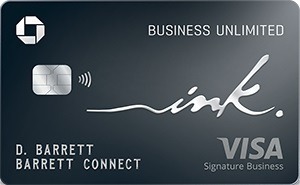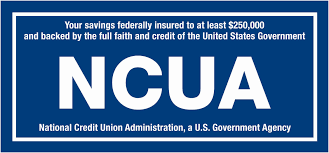 All major banking institutions fall into one of two categories: a credit union or a bank. The difference is, that a credit union is a non-for-profit institution whose sole purpose is to serve their members who are also their depositors and pay them dividends, while a bank is a for-profit institution that pays declared earnings to their stockholders, who may or may not be a customer at their own bank. Credit unions are local and have a small field of membership, however a bank is open to anyone in the general public. If you’re thinking about investing your money with a credit union, you should be asking yourself one thing: What are the Advantages & Disadvantages of Credit Unions? This is an important decision that can change the way you manage your money, so keep reading if you want to learn more!
All major banking institutions fall into one of two categories: a credit union or a bank. The difference is, that a credit union is a non-for-profit institution whose sole purpose is to serve their members who are also their depositors and pay them dividends, while a bank is a for-profit institution that pays declared earnings to their stockholders, who may or may not be a customer at their own bank. Credit unions are local and have a small field of membership, however a bank is open to anyone in the general public. If you’re thinking about investing your money with a credit union, you should be asking yourself one thing: What are the Advantages & Disadvantages of Credit Unions? This is an important decision that can change the way you manage your money, so keep reading if you want to learn more!
 | BMO Bank Checking: Open a new BMO Smart Money Checking Account and get a $400 cash bonus* when you have a total of at least $4,000 in qualifying direct deposits within the first 90 days. Learn More---BMO Checking Review *Conditions Apply. Accounts are subject to approval and available in the U.S. by BMO Bank N.A. Member FDIC. $4,000 in qualifying direct deposits within 90 days of account opening. |
 | Chase Ink Business Unlimited® Credit Card: New cardholders can enjoy a welcome offer of $750 bonus cash back after you spend $6,000 on purchases in the first 3 months from account opening. Click here to learn how to apply--- Review |
Advantages of a Credit Union
 Owner, not customer: When you bank with a credit union, you’re not only their customer, you’re also a part-owner. You own a share in the company, so when they make money, so do you. Once you become a member, you’re a member for life!
Owner, not customer: When you bank with a credit union, you’re not only their customer, you’re also a part-owner. You own a share in the company, so when they make money, so do you. Once you become a member, you’re a member for life!
Better Rates: Typically credit unions offer power rates on loans, but also higher rates on deposits, whether they are in a savings account, a Certificate of Deposit, IRAs, and money market accounts. They are able to do this because they can redirect any surplus funds to their customers because they are not-for-profit institutions. If you want to learn more information on all rates, you can read all about it in our article, What is the difference between APY & Interest Rate?
 Lower Fees: Just like having rates, they have lower fees as well. Since they aren’t for-profit, they don’t need to get any more money from their members, they ensure that your money stays with you because their members are their number one priority. If you’re having trouble with fees, you can check out the Ways to Avoid Excessive Bank Charges.
Lower Fees: Just like having rates, they have lower fees as well. Since they aren’t for-profit, they don’t need to get any more money from their members, they ensure that your money stays with you because their members are their number one priority. If you’re having trouble with fees, you can check out the Ways to Avoid Excessive Bank Charges.
Better Customer Service: Customer service at a credit union is always top-of-the-line because they are focused on every single one of their customers. They are large enough to serve all of your financial needs, but small enough to cater to all of them and focus on you, as an individual, not just another customer.
 Community First: They may be smaller than all the large banks, but that’s what makes them special. They are created to make a more personalized banking experience with their customers, which is why most of them are limited based on where you may live, work, worship, or attend school.
Community First: They may be smaller than all the large banks, but that’s what makes them special. They are created to make a more personalized banking experience with their customers, which is why most of them are limited based on where you may live, work, worship, or attend school.
Disadvantages of a Credit Union
 Must become a member: If you want to participate in any credit union, you must become a member, which means you can only create an account if you are eligible. After that, they typically have a minimum opening balance when you create a member account which can range as low up $5, up to as high as $25.
Must become a member: If you want to participate in any credit union, you must become a member, which means you can only create an account if you are eligible. After that, they typically have a minimum opening balance when you create a member account which can range as low up $5, up to as high as $25.
Limited Branch Locations/ATMS: Since most credit unions are limited to one area, they have very small reach outside of their geographic field of membership, which could prove to be a problem. It’s important to note though, that many credit unions are partnered together in a CO-OP network of ATMs, giving you access to their ATMs as well.
 Not all Insured: All banks are insured by the Federal Deposit Insurance Corporation, while most Credit Unions (not all) are insured by the National Credit Union Administration. If you want to learn more, you can read it in our article, NCUA vs FDIC Insurance.
Not all Insured: All banks are insured by the Federal Deposit Insurance Corporation, while most Credit Unions (not all) are insured by the National Credit Union Administration. If you want to learn more, you can read it in our article, NCUA vs FDIC Insurance.
Less Technology: As a credit union, they operate on a more personal level and within a small field of membership, so they aren’t aiming to gain features such as mobile and online banking, which you might find at a larger banking corporation.

Fewer Services and Options: One of the biggest advantages of a bank is the size of their wallet. Being a multi-million dollar national corporation gives them the freedom and ability to offer a wider variety of products and fund larger loans, like for a house or car. As a small association, a credit union would have a much more difficult time trying to do the same.
Bottom Line:
Whether you have made up your mind on whether in put your money in a credit union or a bank, it’s important to stay informed on the Advantages and Disadvantages of Credit Unions and know what your getting into. The money that you deposit and the loans that you take could determine if you can afford a house in the future. Credit unions offers the same products as banks do, and if you are interested in joining a credit union, check out our list of Credit Unions Anyone Can Join and the Best Bank Bonuses to begin your venture!
| PROMOTIONAL LINK | OFFER | REVIEW |
| U.S. Bank Silver Business Checking Package | $900 Cash | Review |
| U.S. Bank Gold Business Checking Package | $900 Cash | Review |
| U.S. Bank Platinum Business Checking Package | $900 Cash | Review |
| Chase Business Complete Checking® | $300 or $500 Cash | Review |
| Huntington Bank Unlimited Plus Business Checking | $1,000 Cash | Review |
| Huntington Bank Unlimited Business Checking | $400 Cash | Review |
| Axos Bank Basic Business Checking | $400 Cash | Review |
| Axos Bank Business Interest Checking | $400 Cash | Review |
| Regions Bank Business Checking | $150 Cash | Review |
| NorthOne Business Checking | $20 Credit | Review |
| Novo Business Checking | $75 Cash | Review |
| BlueVine Business Checking | 2.00% APY | Review |
